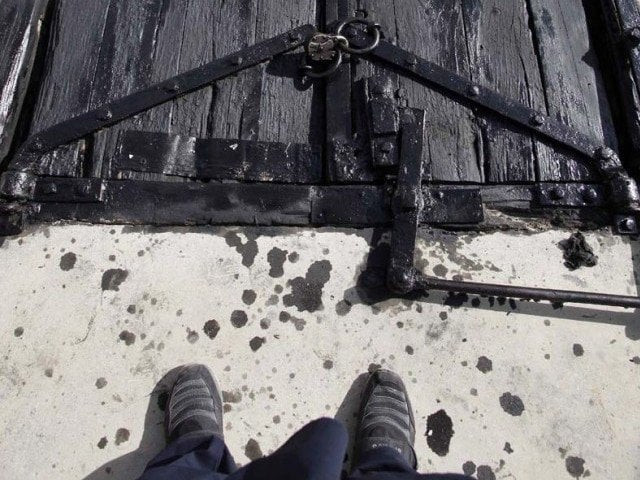Not left hanging: Plea to abolish death penalty dismissed
SC issues detailed four-page judgment on the issue

SC issues detailed four-page judgment on the issue. PHOTO: ONLINE
The Supreme Court while dismissing a plea against the abolition of the death penalty in Pakistan has observed that the right to life and liberty is not absolute in nature. Such a right is, however, circumscribed and subject to law.
The three-judge bench of the apex court, headed by Justice Mian Saqib Nisar dismissed the four-year-old petition, filed by Barrister Zafarullah, a representative of the Watan Party, against the awarding of death sentence in 27 different offences.
Now the top court has issued a four- page written order with reasons related to this matter.
Justice Mian Saqib Nisar while authoring the judgment has observed that the petitioner has referred Article 9 of the Constitution, which says that no person shall be deprived of life or liberty. But the court has made clear that the right to life and liberty is not absolute in nature and a person cannot be bereft of his life and liberty except in accordance with the law.
The court while referring Article 4 (2) (a) of the Constitution says that a person can be deprived of his life and liberty, if it is provided and prescribed by any law.
The judgment also says that the petitioner has failed to show the court that on the basis of two constitutional clauses, the top court while exercising its jurisdiction in terms of Article 184 (3) of the Constitution can direct the abolition of the death penalty in Pakistan and annul any law.
Regarding the petitioner’s argument that Article 9 is not a properly worded article, therefore the parliament should make necessary amendment, the judgment says that the top court while exercising the instant jurisdiction does not deem it appropriate to issue such direction. “As regards the argument that the criminal justice system is unfair, unreasonable and convicts and death punishments lack due process, suffice it to say that this by itself is not a threshold or touchstone for striking down any law, rather if there is deficiency in the relevant law, it is the duty of the parliament to provide it or correct the law by amendment”.
The court while referring Article 10-A of the Constitution said that if any person is aggrieved on account of lack of fair trial or due process of law, he has the remedy, before the appropriate forum in appropriate proceeding, to challenge such a trial and conviction.
Published in The Express Tribune, May 31st, 2015.



















COMMENTS
Comments are moderated and generally will be posted if they are on-topic and not abusive.
For more information, please see our Comments FAQ